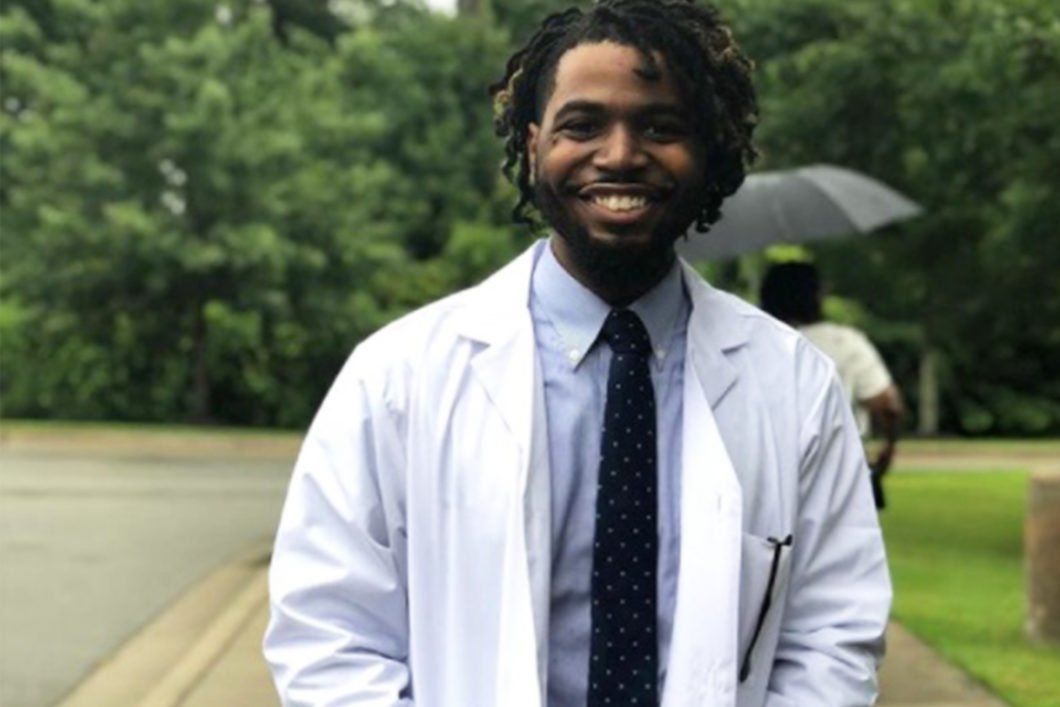When we think of mentorship, we often think of those programs that offer individuals the opportunities to learn, grow, and form a bond with someone who is older than them and who has lived and experienced life at a more mature level. However, when I think of mentorship, I often view it as a time to connect with someone who may or may not have the same life experiences, yet is ultimately someone who teaches you how to make life decisions, weigh pros and cons, and see life through a different lens.
A mentor, by definition, is an experienced or trusted adviser, and mentorship comes in many forms—whether it be a traditional one-on-one mentor or even group mentoring. Regardless, there is beauty in finding someone with whom you feel a genuine connection that can help you navigate life, finances, school, and even your professional journey.
Personal experience has taught me that mentorship is vital because different individuals often have advice that supersedes your own. In addition, mentors act as a “safe space” or “safe haven”; your mentor should be someone with whom you feel comfortable, secure, and vulnerable in your personal and/or academic life. Graduate school offers highs and lows, and the weight of it all has the potential to be intense—and often overwhelming.
A Tribute to My Village
As a Black man in the communication sciences and disorders profession, or even as a Black person in America, I carry an intense feeling of anxiousness that seems forever present. Though I know that I belong, in the beginning I struggled with imposter syndrome, often wondering if this space was designed for me. However, because of that feeling, I began meeting with one of the deans of my college, Ms. Phyllis Fields. She’s taught me that no matter the anxiety or intensity I may feel, it’s my destiny to be here—loud and proud. She often left me with words of encouragement weekly and made sure to set time aside to check on me at least bimonthly if not more frequently. Her sheer concern and desire to see me succeed has kept me pushing to break barriers in this profession.
After a stressful day dealing with bias, microaggressions, and general ignorance, I have to remind myself of a quote from Gandhi himself: “Be the change you wish to see in the world.” This quote is impactful in so many ways, primarily in reminding me that even though I’m in a White space, the power to be the catalyst of change can begin with me and my other Black peers. Black men make up one of the lowest percentages of audiologists nationwide, and I’ve faced adversity, bias (be it conscious or unconscious), and ignorance—which is unsettling to say the least. That has not deterred me from realizing that there is an end goal.
Through both of my mentors, I’ve realized the need for more Black people, people of color, and men in the CSD profession. Every day, I’m reminded that I’m a Black person occupying a White space, meaning that there’s an overwhelming presence of White people in the absence of Black people; but I know I must press forward and continue to be the best version of myself that I can be.
I did not realize the impact that effective mentoring can have on my clinical experiences until I met Dr. Johnnie Sexton. He taught me how to remain true to myself—both personally and professionally—and, in turn, I realized that my impact is more paramount than I could have imagined. It gives me hope when my Black patients tell me that they’re happy to see me succeed, and my heart truly smiles when I hear that they’ve never had a Black audiologist before. That alone evokes a mystifying feeling of appreciation; it feels like the wave of coolness that radiates through your body when you get a chill. It’s unexplainable yet powerful all the same.
Both of these mentors are people of marginalized groups that bring to their profession an abundance of different perspectives—perspectives that often turn my pessimism to optimism. I hope that all students in these programs may find mentors.
For Those Behind Me and With Me
To my peers, I offer this advice: Search for someone with whom you have a common interest or someone who has some form of knowledge that you wish to gain. Form a bond with that person; be sure to view them as more than “perfect professionals” who you want to emulate but also as human beings.
Last, be bold and stick with someone who will always shoot it to you straight, no matter how tough the information may be to process; remember, there is growth in constructive criticism.
As I conclude, I’m reminded that no one succeeds on their own, and the village that raises you often sees the potential in you before you ever will. As I type this, I’m filled with gratitude because I couldn’t have imagined being in this program without the help of the mentors who have built homes in my village along the way and who have mentally fed my body and mind.
Mentorship has brought me change and deep growth: It’s allowed me to see that every experience is all about what you make it—and that no decision is a wrong decision.

